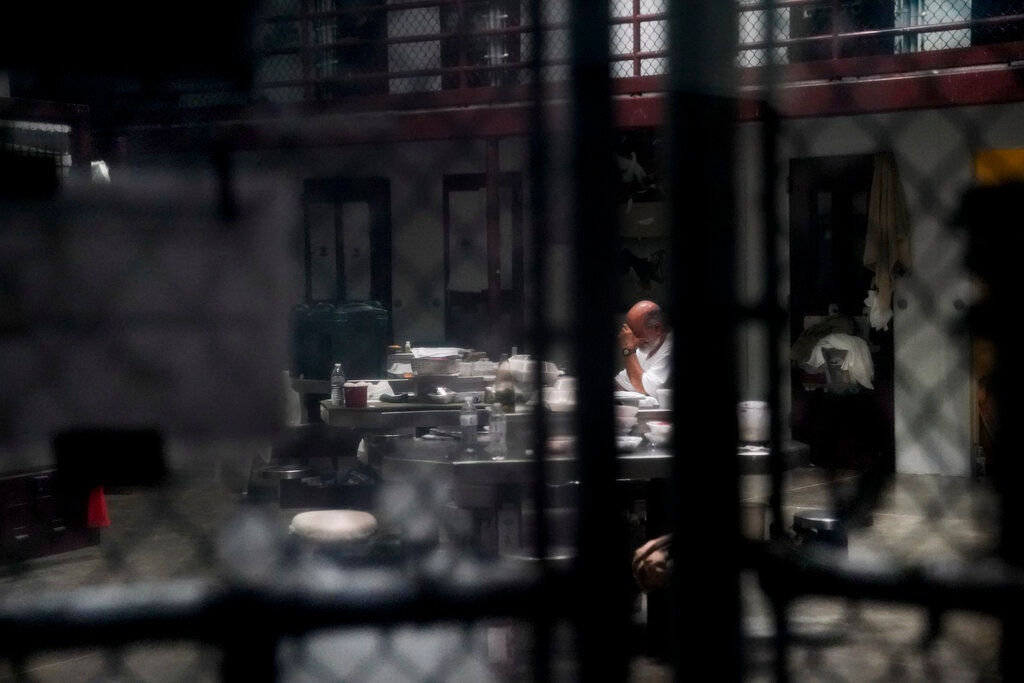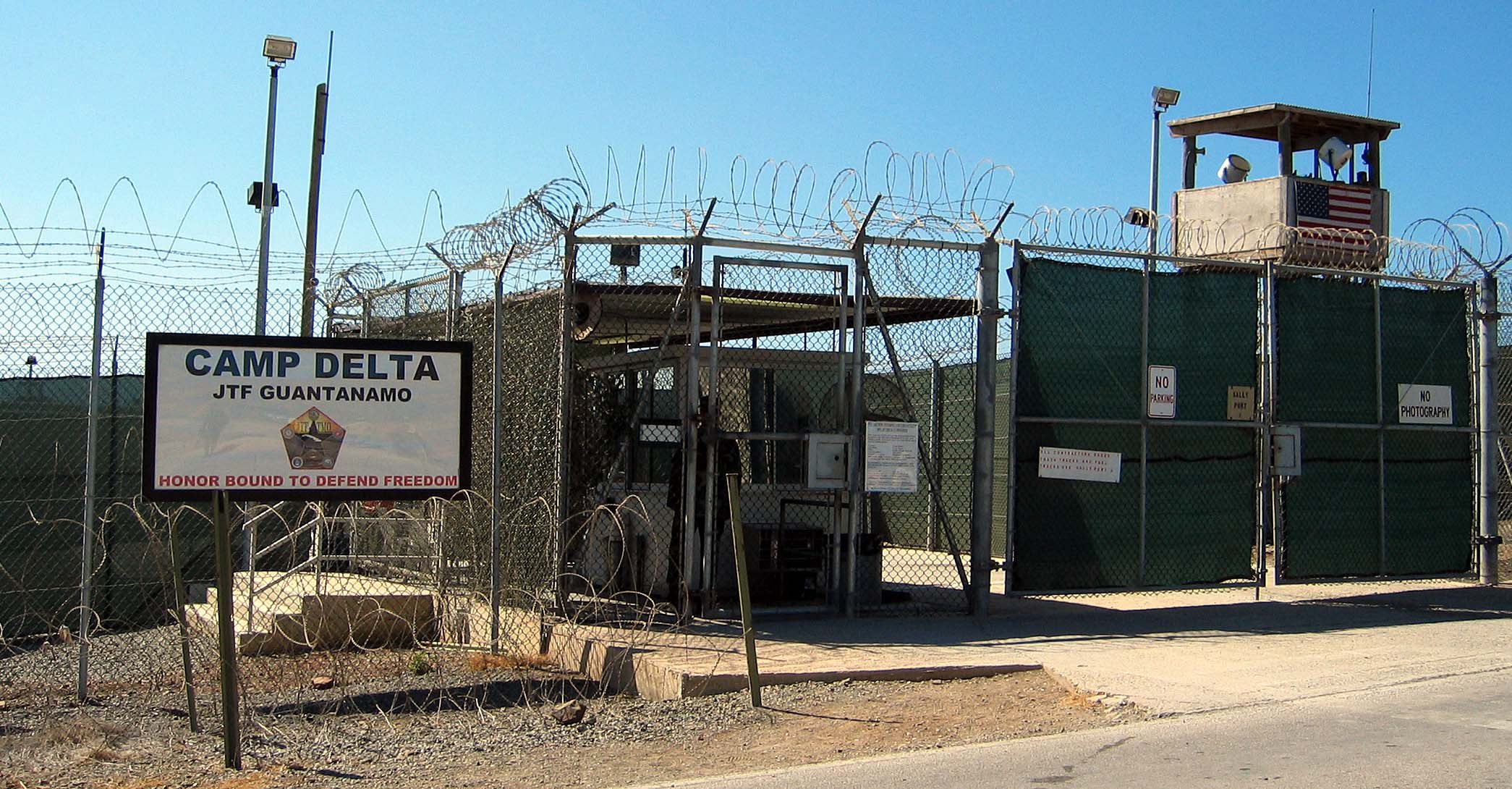
WASHINGTON — Delegates from the International Committee of the Red Cross visiting Guantánamo Bay, Cuba, for the first time during the coronavirus pandemic were unable to meet some of the prisoners held there because restrictions imposed by the U.S. military made it impossible for the two sides to converse, lawyers for the prisoners say.
The delegation from the Red Cross, which seeks humane conditions for prisoners of war around the world, left the base Tuesday after a three-week visit that began with two weeks of quarantine, which the military requires of all visitors during the Covid-19 crisis.
The Red Cross canceled two visits earlier this year because of the pandemic, depriving the prisoners of their only contact with an independent outside organization monitoring the conditions in which they are held.
During the visits with detainees that began last week, the first by the organization since March, prisoners and Red Cross delegates were kept six feet apart in a meeting room, separated by a plexiglass barrier. Prisoners and delegates both wore prison-issue hooded white biohazard jumpsuits and N95 respirators.
Lawyers for several prisoners at the base's classified compound, Camp 7, said one or two prisoners did meet with a Red Cross delegate but found that health protections imposed by the military made it impossible to hold a conversation. Soon after, the rest of the prisoners had their appointments canceled.
Elizabeth Gorman Shaw, a spokeswoman for the International Red Cross, which considers its conversations with both the prisoners and the military confidential, declined to discuss the problems that arose during the meetings, but said the delegation "conducted its quarterly visit to Guantánamo Bay to the best of its ability under Covid-related constraints."
The organization has visited the prison at least four times a year since it opened in January 2002 but canceled two quarterly visits this year because of the pandemic.
A prison spokesman at the U.S. Southern Command in Doral, Fla., Maj. Gregory J. McElwain, said the decision to combine personal protective equipment with "engineering controls, such as plexiglass barriers" was driven by guidelines of the Centers for Disease Control and Prevention.
The prison task force of 1,500 troops "has a responsibility to maintain the health and safety of the detainees and guards," he said.
Neither the military nor the Red Cross would disclose how many of the 40 wartime detainees had scheduled appointments, and how many were canceled.
Major McElwain said the military made efforts to accommodate the Red Cross team.
In the spring, the military disclosed that two people on the base of 6,000 residents were infected with the virus, one of them assigned to the prison staff, but then imposed a blackout on such disclosures. The base imposed a heightened state of health alert for a week in October while it sent tests to the mainland that lawyers briefed on the scare said came back negative.
Brig. Gen. John G. Baker, a Marine defense lawyer who met with a detainee under similar conditions last month, said the distance and barriers made his conversation difficult and muffled. It was held in a meeting room that typically has both an air-conditioner and dehumidifier blowing. He was forbidden to give or show documents to the detainee.
General Baker said that once he donned the prison's required attire, which included surgical booties, only his eyes and forehead could be seen, and the same was true of the prisoner.
The detainees for the most part have been kept in a bubble of sorts since the start of the pandemic, with just two lawyers reaching the base and reduced contact with the guard force.
One prisoner wrote his lawyer in a letter this week that the Red Cross "decided to cancel the remaining appointments in protest against the exaggerated measures." The lawyer spoke on the condition of anonymity and declined to name the prisoner without first seeking his permission, which would require several days because of delayed communications between lawyers and prisoners through a secure mail system.
James G. Connell III, a death penalty defense lawyer, said his client, Ammar al Baluchi, was among several former C.I.A. prisoners who had an appointment with the Red Cross canceled. He said the outcome of the meeting did not bode well for Pentagon efforts to resume hearings early next year in the case of Mr. al Baluchi and four other men who are accused of conspiring in the hijackings on Sept. 11, 2001, that killed nearly 3,000 people.
"Communicating through a plexiglass wall about complicated issues is impossible," he said. "If the I.C.R.C. can't speak to prisoners through a plexiglass wall, how do they expect to have a court hearing through a wall?"
No proceedings have been held in the case since February. Military contractors have installed plexiglass inside the cavernous national security courtroom, including a barrier between lawyers and the prisoners, in anticipation of the hearings starting up again before the end of the pandemic.
The prospect of resuming pretrial proceedings in the capital Sept. 11 case hit a new snag this week. Prosecutors filed a motion on Tuesday asking the Air Force judge assigned to the case to step down as unqualified because he has not served a full two years as a military judge, which is required under the rules for military commissions.
The prosecution opposed the choice of Lt. Col. Matthew N. McCall on the day he was assigned to the case, Oct. 16, and have repeatedly asked him to quit the case in notices and other court filings. Tuesday's filing explicitly asked him to either recuse himself or stop issuing rulings.
Colonel McCall, the sixth judge to handle the death penalty case since the defendants' arraignment in 2012, has extended litigation deadlines in the case in light of the virus. In effect, that postpones jury selection until after next year's anniversary of the Sept. 11 attacks.
COVID-19 Update: The connection between local and global issues–the Pulitzer Center's long standing mantra–has, sadly, never been more evident. We are uniquely positioned to serve the journalists, news media organizations, schools, and universities we partner with by continuing to advance our core mission: enabling great journalism and education about underreported and systemic issues that resonate now–and continue to have relevance in times ahead. We believe that this is a moment for decisive action. Learn more about the steps we are taking.





